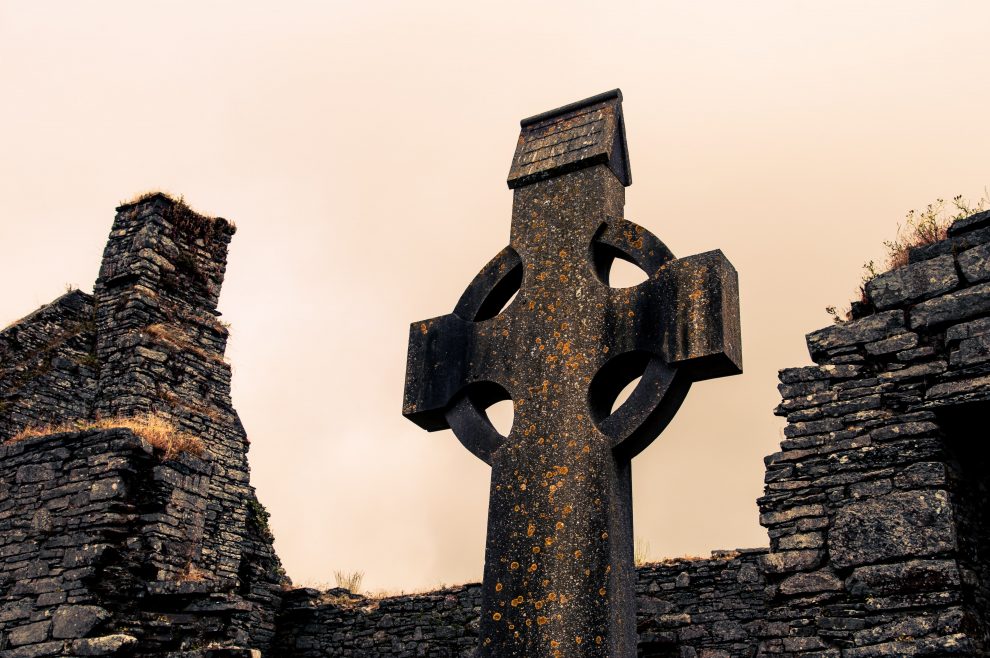The kids in the Catholic seventh grade classroom—Hispanics, Filipinos, African Americans, and my own Irish American offspring—took on a project to highlight three aspects of their cultural heritage. As the teacher listened to the kids brainstorming, he turned to my child and said, “Three cultural traits of the Irish? That’s easy: drinking, drinking, and more drinking.”
The next day we met with the principal, who turned pale as she listened. The teacher apologized to my husband and me. There were no fisticuffs.
Because we had known our kids would encounter this stereotype, years earlier my husband and I had planned and executed a preemptive strike. We cast about for a way to celebrate St. Patrick’s Day that leaned on the faith, stories, and music of Ireland rather than on the “Irish as carefree alcoholic” caricature—especially offensive because of the destruction and grief that real alcoholism cuts through many Irish families, including ours.
We decided to host a party for our extended family and some friends, asking everyone to bring a song, a poem, a story, a dance from their own culture or another’s. We laid out the good tablecloth, said grace, served dinner. Then we dragged chairs into the living room, and waited.
My sister read a poem. My husband sang a song. So did his mother, who had such a lovely voice that in her youth she used to sing on the radio. My niece did an Irish dance. I brought out the statue of St. Patrick, put on some haunting Irish music, and read a bit about the real man. The people in that room took a risk with us.
We tried it the next year and the next. My brother-in-law (now a published poet) read a few of the poems he wrote in his basement on Saturday mornings. My young nephews did magic tricks, karate, standup comedy (hilarious). Our friend sang in Polish. My sister told of tracking down our family roots. My historian husband told us how labor unions lifted up Irish Catholic immigrants, back in the era of signs reading “No Irish need apply.”
The music has featured everything from traditional Irish ballads to the Dixie Chicks. It takes courage to perform, even for family, when you are not a virtuoso, but nevertheless out comes the guitar, the violin, the lyrics.
Some people began writing down stories to share at the party—about birth, death, the epiphanies of daily life. My husband’s sister last year read “Porch envy,” about her neighborhood walks with my sister-in-law Evelyn, a cancer warrior for years now, whose continued presence every March speaks to the miracles of medicine and the mercy of God.
“I believe with all my hoary heart that stories save lives,” writes Brian Doyle in Grace Notes (ACTA) “and the telling and hearing of them is a holy thing.” Perhaps this gathering has worked for 20-plus years because it is a chance to slow down and tell stories in words and music, rather than just watch them on TV. Perhaps because the adults feel we’re passing along to our kids something of our faith and culture that is sturdy and true. Perhaps because there is no alcohol.
You know, everyone thought Patrick was nuts when, having escaped enslavement by Irish raiders as a youth, he wanted to go back to pagan Ireland to preach the gospel. He went nevertheless and baptized much that he found among the Celts: their belief in an afterlife, their conviction that the beauty of nature revealed God. He bent these good things to the service of Christ.
As for our annual gathering in his honor, I hope he would approve.
Photo by Joachim Riegel on Unsplash















Add comment